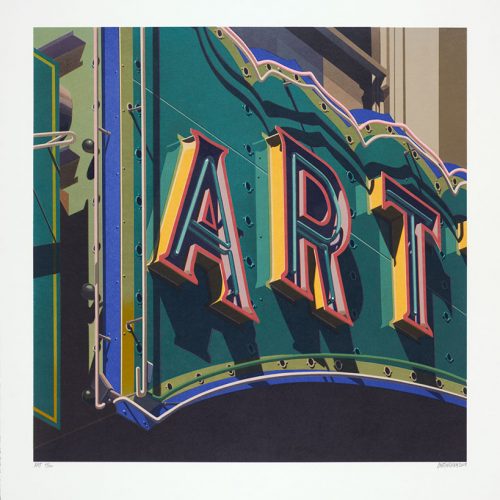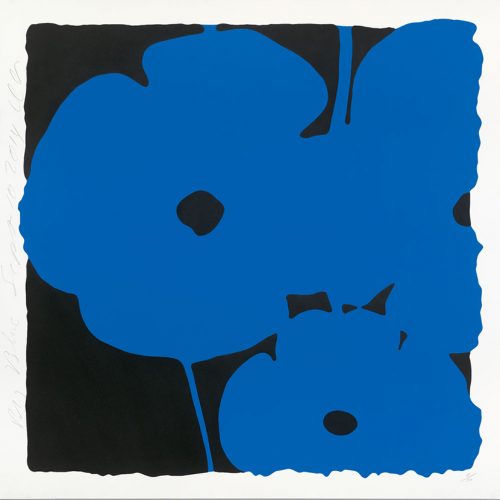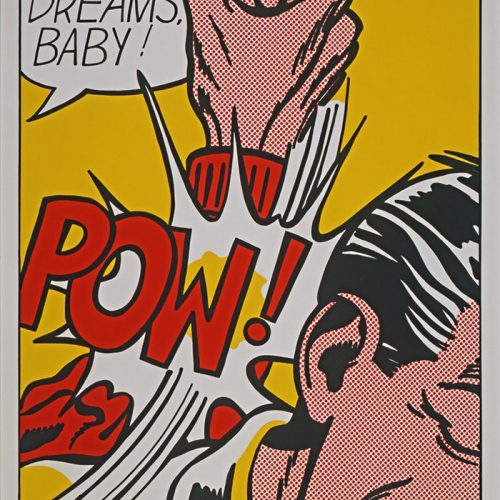Pop art is a multi-sensory experience. Though the eye-catching nature of pop is perhaps its most well-known characteristic, this type of art tempts our vision as well as hearing, taste, touch, and smell.
Featuring several generations of pop artists, Shiny, Sticky, Smooth offers a fresh perspective on this formative method of artistic production. Pop emerged from the booming consumer culture of post-war America and adapted not only the imagery of advertising but also its strategies. Combining bold colors and familiar subjects with carefully chosen materials, textures, and compositions, pop artists created a multi-sensory experience in their work.
In marked contrast to the austerity of the preceding war years, mid-century Americans were surrounded by a dizzying array of new products. Advertisements for the latest chromed, streamlined cars conveyed speed and power. Brightly colored, glistening candies sparked the appetite. Polished furniture tempted the sense of touch and gleamed with the possibility of a more stylish home and lifestyle. The vivid depictions of these products sparked consumer desire by appealing to the senses. A generation of young artists—including pioneers such as Andy Warhol, Roy Lichtenstein, and Claes Oldenburg—gravitated toward the direct salesmanship of this commercial world and incorporated the same strategies into their fine art practices. Yet, the pop spirit was not confined to the 1950s and 60s. A later generation of artists such as Jeff Koons and Donald Sultan adapted these methods for a new chapter of American mass media.
By utilizing familiar subject matter and enticing the viewers’ sensations—vision, hearing, taste, touch, and smell—pop artists shattered the division between fine art and everyday life. As Roy Lichtenstein noted, pop art “doesn’t transform. It just plain forms.”





